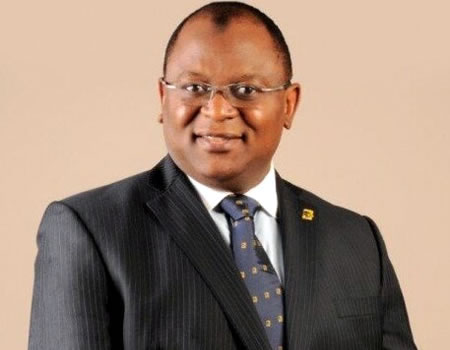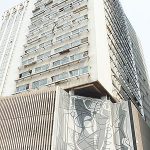STAKEHOLDERS in the Nigerian economy have argued that increase in crude oil price is panacea for economic recovery. Nigerian economy officially entered into recession third quarter of 2016 and various efforts have been put in place to ensure the country is out of recession.
Speaking during the KPMG Alumni Cocktail 2017, the Managing Director/Chief Executive Officer (CEO), First Bank of Nigeria Ltd and Subsidiaries, Dr. Adesola Adeduntan, FCA, a recovery in global oil prices, following OPEC’s agreement with non-OPEC members to stich up supply and improved oil production and export numbers on the back of the pacification of a resurgent militancy in the oil rich Niger Delta region have both pushed export earnings up.
He said this has resulted into increase in two output components, net export growth and increase in government spending.
He noted that for any reform to succeed in the Nigerian economy which is largely dependent on crude oil proceeds, the oil and gas sector should be the first point of call.
According to him, “unfortunately, we have seen efforts so far to pass a broad-spectrum bill for the sector flounder. Desirable though, the Petroleum Industry Bill (PIB) is our pursuit of it may have us unable to see the trees for the woods.
“Around 1993 when we signed the Petroleum Sharing Contracts (PSCs) governing the mining operations offshore acreage, much of the variables in that sector of oil exploration and exploitation was in the air.
“Accordingly, we granted fiscal and legal terms to operators that today appear quite liberal. Nonetheless we did include in most of those contracts provisions for reviewing the contracts after 15 years. “While we negotiate the political landmines that have frustrated the enactment of the PIB, we could take another look at the terms of the offshore operations in the country and see how we could make this a win-win thing for all stakeholders.”
Apart from increase in crude oil earnings, he emphasised the need for restructuring at all levels. “The Oronsaye Report on the rationalisation of the public sector is one such low hanging fruit. Five agencies in the communication sector like National orientation agency (NOA), News Agency of Nigeria (NAN), Ministry of Information, Federal Radio Corporation of Nigeria (FRCN) and Nigerian Television Authority (NTA) could be reduced to one or two and reduce the capital expenditure even if we are to continue their salaries,” he said.
Furthermore, he said distributed generation and off-grid along with the frightening ease with which renewables low marginal costs of operation are disrupting traditional power distribution and generation patterns mean that there is huge space for sorting out issues in the power sector.
“In sectors like power, as with both telecommunications and internet service provision, the structure of transition incentives will be important. By far the biggest deliverable is to let private sector providers deliver location-specific bespoke solutions,” he said.
In his welcome address, Kunle Elebute, the National Senior Partner, KPMG in Nigeria and Chairman, KPMG West Africa, stated that the Alumni Cocktail afforded the KPMG Alumni the opportunity to re-unite, re-connect and discuss different business ideas that will be beneficial to the Alumni, KPMG and the country at large.





